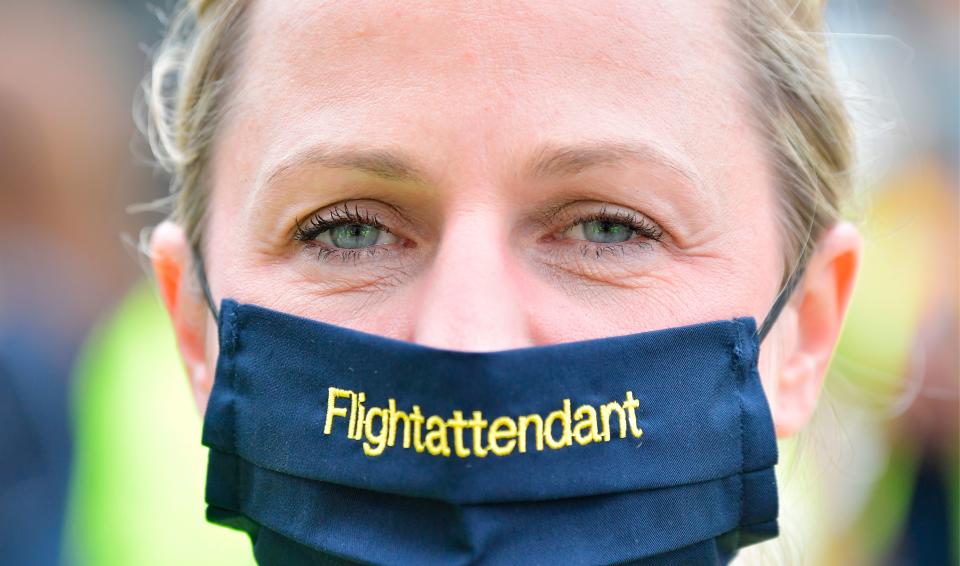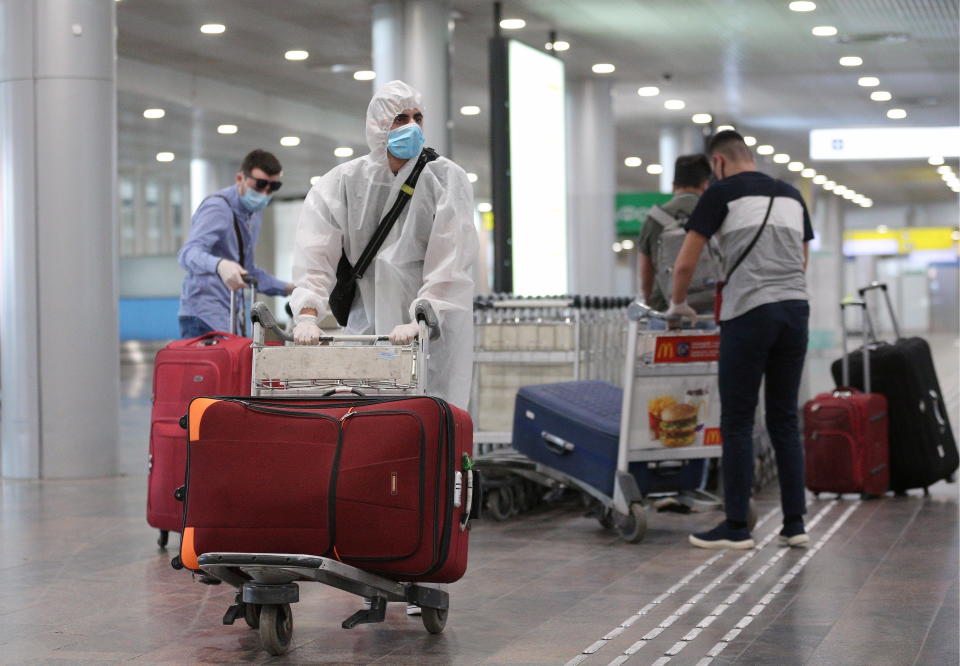Travel expert: 'What I do think will change is vacation'
After taking a massive hit from the pandemic, the airline industry so far is recovering faster than expectations, with traffic outpacing industry estimates. But one airline analyst said the future of leisure travel remains uncertain.
“What I do think will change is vacations,” Helane Backer, managing director and senior research analyst at Cowen Research, told Yahoo Finance’s The First Trade.
“Our biggest concern is that people will decide to stay home rather than travel,” Backer said. “That has all sorts of implications down the line.”
Roughly 630,000 people are already traveling on the traditional peak days, according to weekly data. Industry experts had predicted it would take until Aug. 1 for traffic to reach 400,000 air travelers and the year-end holidays would hit 1 million.
Backer considers the traffic numbers to be “really encouraging,” but mentioned that people are still afraid to travel despite hygiene measures implemented by the airlines.

With few exceptions, face coverings or masks are required by the major U.S. carriers. Backer believes it’s this same safety measure that’s going to be what travelers find as the biggest hurdle.
“It’s one thing to wear a mask for a two-and-a-half to three-hour flight,” Backer said, while elaborating that face coverings are recommended for the entire travel process — not just in-flight. A face mask should be worn while you’re in a ride share or on public transportation to the airport until the moment you’ve arrived at your hotel at your destination.
The commitment might be enough to turn people off and “choose short flights rather than long flights,” Backer said. But the decline in short-haul flights can’t be pinned on just COVID-19; the trend has been around since 9/11 when people elected to drive rather than fly distances under four hours, she said.
This doesn’t mean the end of leisure travel. Americans will still fly, particularly around the holidays.
“Visiting friends and relatives is always going to be important,” Backer said.
Shift in business travel
The pandemic also forced industries to operate creatively to make up for a remote workforce imposed by social distancing.
Pre-coronavirus, air travel was used to gather employees from disparate locations and connect with clients. However, video conferencing and services like Zoom and Skype have abridged distance.

Similar to how many workers aren’t spending their time commuting and reporting additional time in their days, Backer, a frequent business traveler herself, called traveling for work a “time suck.”
Video conferencing provides people a “choice other than getting on a plane and going to see their clients,” Backer said, and there’s no inclement weather, cancelations, delays, and late arrivals to contend with.
Stephanie is a reporter for Yahoo Money and Cashay, a new personal finance website. Follow her on Twitter @SJAsymkos.
Read more:
'Antidote to anxiety is control': The psychology behind the coronavirus panic buying
Coronavirus stimulus: Arizona Senator's $4,000 travel credit is 'one of the wackiest' ideas
Illegal Tender podcast: How 'MLM' schemes turn regular lives upside down
Follow Yahoo Finance on Twitter, Facebook, Instagram, Flipboard, SmartNews, LinkedIn, YouTube, and reddit.

 money
money 

